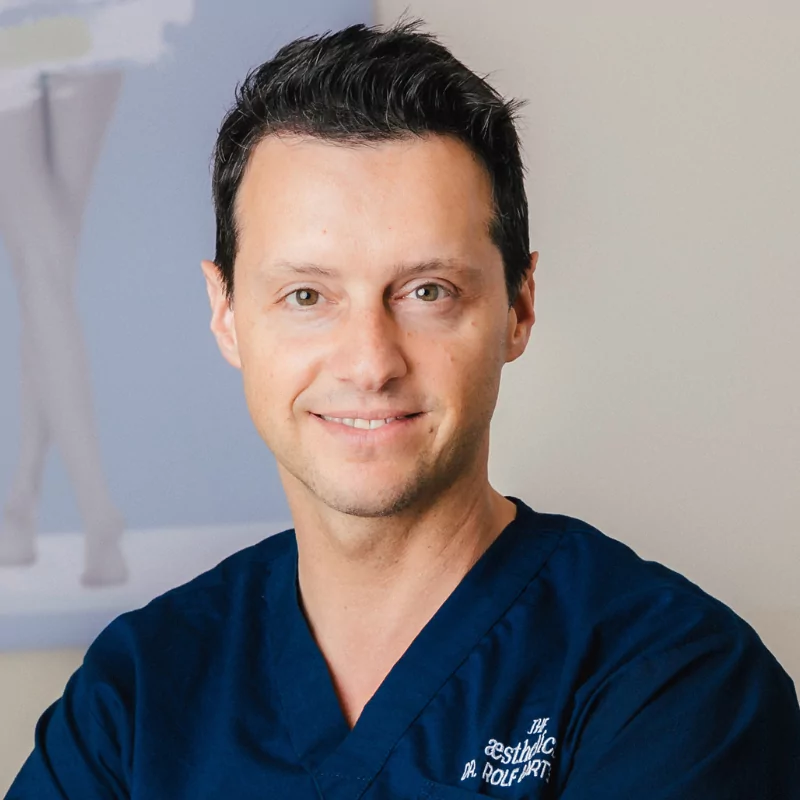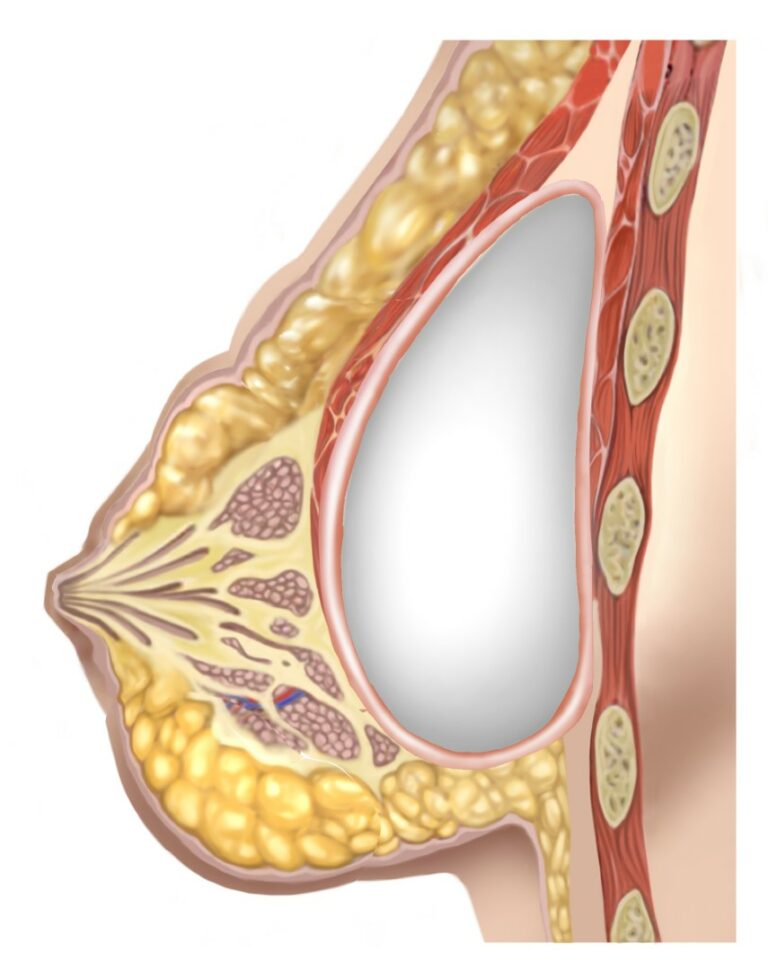KAPSELFIBROSE nach BRUSTVERGRÖSSERUNG: Wie hoch ist das Risiko? doc.rolf
You are currently viewing a placeholder content from Vimeo. To access the actual content, click the button below. Please note that doing so will share data with third-party providers.
More InformationCapsular fibrosis after breast augmentation is a risk, but only occurs in a very small percentage of cases. The capsular fibrosis rate in our patients is less than 1 percent. Neither you nor the doctor are to blame if you develop capsular fibrosis.
But what is capsular fibrosis anyway? Capsular fibrosis is a complication that can occur in rare cases after breast augmentation or a breast lift with implants. It describes the excessive formation of a hard, connective tissue-like capsule around the breast implant. In the case of capsular fibrosis (capsular contracture), the body begins to envelop the implant with connective tissue. The immune system then reacts to the foreign object and attempts to isolate the “intruder” by forming a barrier of connective tissue. The reasons for the development of capsular fibrosis are not yet 100% clear. However, it is now assumed that a subclinical infection is present – i.e. an infection that never breaks out because the defense mechanisms prevail and eliminate the pathogen before it can trigger a disease.
How do I recognize capsular fibrosis & how is it diagnosed?
Capsular fibrosis can be detected by clinical palpation, the breast feels harder and there is often pain or deformation. Capsular fibrosis is difficult to detect with an ultrasound, X-ray or MRI. However, an implant rupture can be detected using these methods. If this is the case, the implants must be removed as quickly as possible.
When does capsular fibrosis occur?
Capsular fibrosis occurs – if at all – within the first few months up to a maximum of two years after the operation. It usually manifests itself in one breast being firmer than the other. This makes the breasts look and feel asymmetrical.
Will capsular fibrosis make me ill?
Capsular fibrosis is not dangerous per se. However, an examination by a plastic surgeon is necessary for further clarification. It is usually not an infection, but in many cases an aesthetic problem. However, severe capsular fibrosis (Baker scale 3 and 4) can cause pain because the fiber bundles pull on the surrounding tissue. Capsular fibrosis is often also caused by implant rupture. It is important to note that depending on the severity of the fibrosis – which is divided into 4 levels according to BAKER – different measures must be taken. The implant must be replaced in the long term, as pain can also develop over time.
Are there differences in severity?
Yes, the severity of fibrosis is differentiated according to four stages. In the first two stages, the patient feels nothing and pain only occurs from grade 3 onwards. At grade 4, there is a clear deformation of the affected breast.
Are there women who have a higher risk than others?
Yes, capsular fibrosis often occurs after radiotherapy for breast tumors. Therefore, foreign bodies should generally be avoided after breast cancer treatment. There is also an increased risk if there is heavy bleeding during the operation. Older implants are often smooth or very heavily textured, which in turn leads to a higher risk of capsular fibrosis. Recently, nanotextured implants have therefore been used, as these have the lowest risk of capsular fibrosis.
How is capsular fibrosis treated?
Capsular fibrosis can be treated in two ways. On the one hand through a so-called capsular disruption, and on the other hand through surgery. Capsule rupture involves attempting to rupture the capsule by applying pressure from the outside. This procedure is performed in twilight sleep. The ruptured capsule remains in the body, but capsule formation is stopped. Surgery is another possible treatment option: the implant and capsule are removed and replaced with a new implant.
Are there any guarantees that will minimize my costs if I get capsular fibrosis?
Yes, we offer the new guarantee program from JOY (Motiva), which covers a lifetime implant replacement in the event of rupture and a 10-year implant replacement in the event of BAKER 3 and BAKER 4 class capsular fibrosis. Information is available at our practice.
You are currently viewing a placeholder content from Vimeo. To access the actual content, click the button below. Please note that doing so will share data with third-party providers.
More InformationYou are currently viewing a placeholder content from Vimeo. To access the actual content, click the button below. Please note that doing so will share data with third-party providers.
More Information



